5 Steps to take your book from idea to reality
Ask anyone who has ever had a writing deadline or task on their to-do list if they have suffered from writer’s block, and they will almost certainly respond with a ‘yes’. As the old 1980’s hit by FR David suggests, Words, Don’t Come Easy.
But words are not impossible either; people have made a living out of writing for a long time – some more successfully than others – so with that in mind, here are a few simple hacks to help you turn your book into reality and to get your words out of your head and onto paper.
1. It’s not just a commitment to yourself
If you tell yourself that you are going to write a book, it will probably never happen. It takes extreme self-discipline to sit down and research, plan and write a book. In the same way that people training for a marathon tend to do so with friends or as part of a club, so too should a writer commit to the task with others. The commitment that you make will be to the team that is going to help you get the book over the line. In the world of self-publishing, South Africa is a leader and you will need to surround yourself with a team that includes a proof-reader, a publisher, a designer, etc. The more people there are who can hold you accountable the better it is for you.
Having said that, don’t go and make outrageous claims or commit to deadlines that can never be met. But at the same time do challenge yourself to hit regular deadlines. It might be as simple as telling your proof-reader or editor that you will have a new chapter for them to read in a week. But create that expectation and set that goal and you will find that you are more likely to get it done. Quite simply, if you don’t know what the goal is, you will never score. So set goals and delight in hitting them.
_-_ebook_audiobook_couple.jpeg?width=1199&name=Key_Publishing_Trends_(2)_-_ebook_audiobook_couple.jpeg)
2. Do not be afraid
A huge part of writer’s block is fear. Writing a book is a very personal activity and for many people, there is a fear that their best efforts will be deemed not good enough once they are done. And so the subconscious hunt for excuses not to start (or not to finish for that matter) begins.
But there really is no need to be afraid. Remember first and foremost that you are writing for yourself. You don’t need a major publishing house to snap up the rights to your manuscript. That doesn’t happen very often. For many writers self-publishing a book is the way to go - even better than that there is now a company called Pring on Demand that offers print on demand solutions, which means you don’t need to commit to a massive print run. In fact, if you want to print a copy for yourself and one for your grandfather (who has always been your biggest fan), then print on demand technology allows you to do exactly that. If it turns out that the book is really good and everyone at granddad’s old-age home wants a copy, then it is simple to increase the number of copies as the orders flood in.
3. Perfection is the enemy of good. Beware
Similar to the above but more about the words than the publishing process, be aware that perfection is almost unattainable. In fact, the quest for perfection often ensures that many talented writers never get their very good books published because they are always trying to make them better. Gustav Flaubert, who wrote Madame Bovary, a novel that has been described as one of the greatest and most influential masterpieces of all time, took five years to get the book done. He is famous for his quest to find the unique right word. But without denigrating your talent, you should probably not try to compare yourself to Flaubert. Aim to write something good and then see what happens after that. Don’t hold yourself to impossible standards.
In fact, in his very worthwhile video, Jeff Bollow suggests that the success to getting past fear and writer’s block is to give yourself permission to write garbage. He clarifies this by saying that you probably won’t write garbage, but that by giving yourself permission to not be perfect you are freeing yourself from the chains that are holding you back.
4. Know where you are going
This might sound like an obvious thing to say, but you are writing this book, it isn’t going to take care of itself. And if you want to succeed in your publishing quest, then you need to know what you are going to write. Anybody can start a book and get a few chapters under the belt. It is finishing that is the hard part. Statistics suggest that of all books that are started only three percent will actually be completed. That means there is a 97% non-completion rate, which is extraordinarily high. You need to know where the story is going or you will find that you are writing yourself into corners and cul-de-sacs. If you know where the work starts and where it ends then it is a whole lot easier to fill in the detail in the middle.
5. Reward yourself for hitting goals
If a task is so large that it feels unattainable then it becomes a very hard process to even start. As you probably know, the best way to eat an elephant is one bite at a time. The same logic applies to getting your book out. Break the task down into achievable daily goals. And reward yourself for hitting those goals. In doing this you make the task of turning your book from an idea into a reality a whole lot easier – and more pleasurable.
What I’ve learned in 10 years of writing books:
— Ryan Holiday (@RyanHoliday) April 29, 2021
- Routine is everything
- Write what what you can’t NOT write
- It always takes longer than you think
- There’s no such thing as writer’s block (just insufficient research)
- Live an interesting life—it improves your writing
The rewards for achieving the goals don’t need to be big. Think of a quality cup of coffee, a stroll in the park or some time rabbit-holing on YouTube. Pick something that you enjoy and do it once you have hit your daily word goal. Before you know it you will have amassed a substantial body of work.





